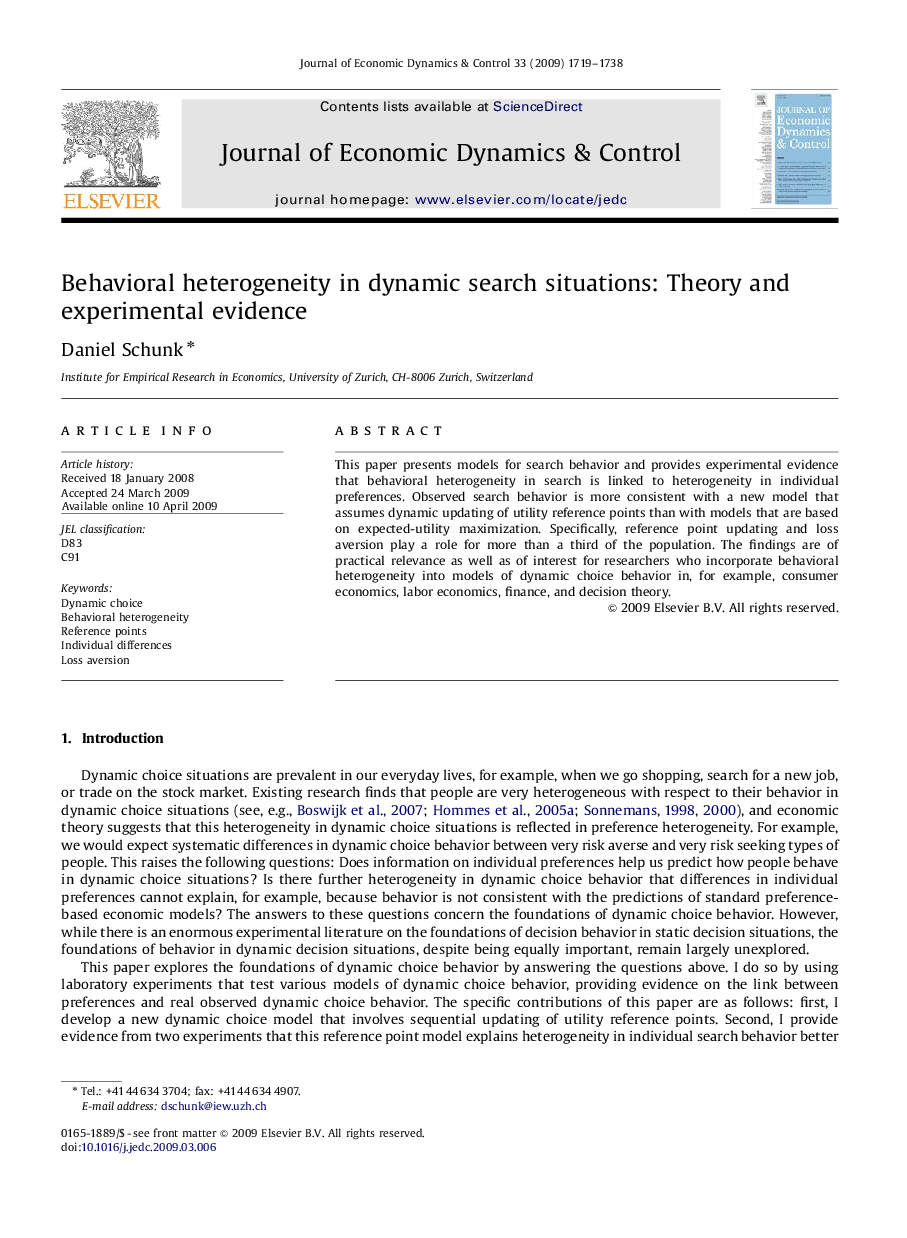| Article ID | Journal | Published Year | Pages | File Type |
|---|---|---|---|---|
| 5099069 | Journal of Economic Dynamics and Control | 2009 | 20 Pages |
Abstract
This paper presents models for search behavior and provides experimental evidence that behavioral heterogeneity in search is linked to heterogeneity in individual preferences. Observed search behavior is more consistent with a new model that assumes dynamic updating of utility reference points than with models that are based on expected-utility maximization. Specifically, reference point updating and loss aversion play a role for more than a third of the population. The findings are of practical relevance as well as of interest for researchers who incorporate behavioral heterogeneity into models of dynamic choice behavior in, for example, consumer economics, labor economics, finance, and decision theory.
Keywords
Related Topics
Physical Sciences and Engineering
Mathematics
Control and Optimization
Authors
Daniel Schunk,
